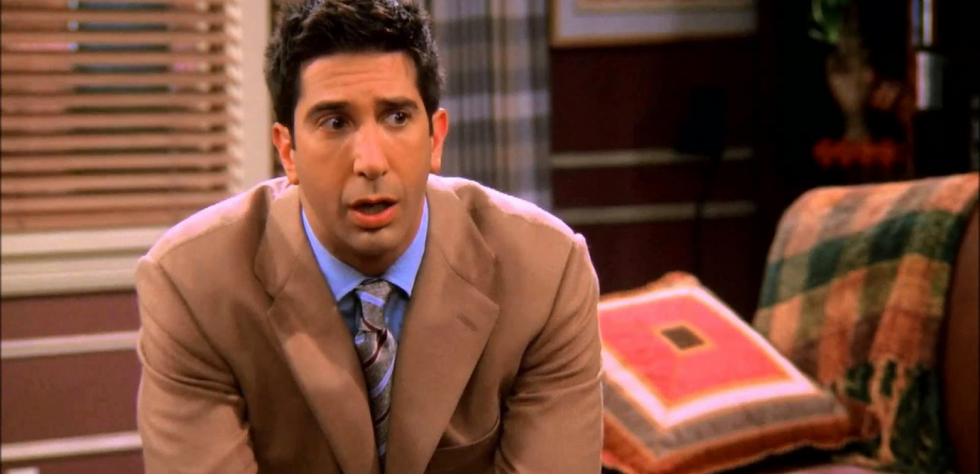1. “That’s Interesting”
This is typically the first response to me answering relatives inquiries with, “Oh, I’m an Anthropology major.” The phrase, ‘that’s interesting’ to me, basically means ‘I couldn’t care less’. But also, ‘what is that again?’.
Yes, it’s not your average major. Everyone has heard of it, but no one really knows what it entails unless they’re actually studying that major. In truth, I feel that even high school students should take anthropology classes. Ok, so I’m extremely biased of course, but there really are numerous benefits that come into play after high school and college if you’ve got even one anthropology class under your belt.
If anything, you’ll learn a lot about people and our history and evolution; whether you believe it or not. It’s really very interesting and it breaks down inaccurate or culturally constructed categories and ‘fake facts’. Terms such as ‘race’ are put up against logic and lose. I’ve learned a lot about humans in general and it brings you into the reality of the world and the diversity within it. Specifically, in today’s society, opening up to the diversity around you, (rather than ignoring it and tossing it over some wall) is something that I feel everyone should do.
2. “Like Ross from Friends?”
I cannot even remember how many times I’ve heard this, nor how many times I’ve ignored it and just replied, “Uh, yeah. Like Ross.” Followed by a sly eye-roll and a slight exhale in breath. Hey, I get it. He’s basically the only accurately portrayed archaeologist. I mean, I love Harrison Ford, but Indiana Jones is not a good archaeologist. He is just horrible – he doesn’t document anything, no pictures or notes, and he just takes things. At best, he’s a treasure hunter. Don’t get me wrong, that’s cool too, but don’t get the wrong idea. He is not an archaeologist. So, it’s not your fault that Ross is the first thing you think of.
No, not like Ross. Ross is a paleontologist. I study, anthropology. Paleontology studies dinosaurs, specifically their remains and what can be learned from excavating them. It’s a specialization of archaeology. A common saying is that all archaeologists are anthropologists, but not all anthropologists are archaeologists. I don’t excavate anything; the whole dirt thing just isn’t for me. Anthropology is mainly the study of humans and their evolution, but also modern humans and different cultural concepts such as gender or socioeconomic status.
3. “So…what can you do with that?”
Following the whole, ‘like Ross’ bit comes the big question: “What can I even do with an anthropology degree?” Well, the answer is a whole lot. It’s sort of like English in its flexibility and its benefits to life after college. You can work for corporations like Target and study their demographic and why things are or aren’t selling. That’s where the big bucks are, if you’re lucky. Otherwise, you can pretty much assume if you’re studying archaeology/anthropology you won’t be a millionaire, so you better love what you’re doing.
You can travel and live with different communities and cultures to learn about them and their practices. This is a popular one, and would typically result in a book of some sort on the people themselves and/or the writer’s experience while living amongst said group. Honestly, these books are often intriguing and enlightening. They’re called ethnographies, and if you get the right one it might just convince you to change your major to anthropology. My personal favorite is called, Wisdom Sits in Places by Keith H. Basso. So, if you’re not ready to make the switch, but the topic interests you, go ahead and pick up a copy. Of course, there's always being a professor if going to even more schooling is your thing. I have to admit, people calling me Dr. Rossi would be awesome.
Another option would be to work for a charity, or write articles for a journal. Beyond those few options there are many others. Writing in general is a huge career path in this field, as not many anthropologists/anthropologists can write creatively and often have trouble making things sound interesting enough for the public to read and not just other scientists.
With any career path, a minor or double major in anthropology would be highly beneficial. The knowledge it brings can facilitate communications in the future, giving you the tools to interact with all kinds of diversity and easily delve into different cultural interactions. Even traveling in general can seem so much easier.
I have gained so much through studying this subject, and I would highly suggest it to anyone attending any college, studying any degree. With it, you have the upper hand in any situation.

















